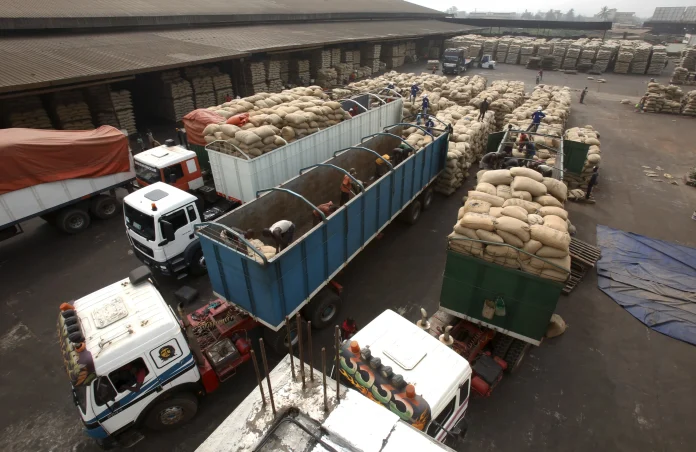After years of hesitation, Ethiopia has finally taken a decisive step toward joining the African Continental Free Trade Area (AfCFTA). Nearly six years after ratifying the agreement, and four years since the African Union launched the world’s largest common market, the country has published regulations in the Negarit Gazette outlining which goods and services will benefit from tariff concessions. For Ethiopia, one of Africa’s fastest-growing economies and a nation often described as the continent’s diplomatic capital, the delay has raised questions about its readiness to embrace integration. Now that the regulation is public, attention has shifted to what Ethiopia has chosen to liberalize, and what it has left out.
The 419-page document approved by the Council of Ministers sets out tariff schedules covering almost 6,000 products identified under AfCFTA. As the continental agreement requires, 90 percent of goods fall into Category A, slated for immediate zero tariffs. Seven percent, grouped under Category B, will be phased out over a decade, while three percent grouped under Category C, are permanently exempt, usually to protect national champions. Ethiopia’s regulation, however, makes public only its Category A list. The absence of details on Categories B and C underscores the sensitivity of what the country intends to shield.
Read also: Ethiopia clears final hurdles to begin trading under Africa Free Continental Free Trade Area
Perhaps most striking is what Ethiopia has chosen not to include in its liberalized list. Coffee, the country’s emblematic export and a cornerstone of its global trade identity, is not among the products subject to immediate tariff elimination. Other excluded products are sesame, khat, banking and telecom services, sectors where Ethiopia remains cautious about foreign competition. Instead, the list favors agricultural inputs, fertilizer, cement, alcohol, cotton, and processed leather. In doing so, the government signals confidence in some domestic industries while protecting others deemed too strategically or economically sensitive to expose to full continental competition.
For Africa at large, Ethiopia’s choices echo a wider dilemma confronting many member states: how to balance the promise of a unified market with the political and economic impulse to guard national interests. AfCFTA was conceived to boost intra-African trade, which remains stubbornly below 20 percent of the continent’s total commerce. By lowering barriers, the deal aims to unlock economies of scale, drive industrialization, and strengthen Africa’s bargaining power globally. Yet if too many countries withhold their most competitive goods and services from liberalization, the transformative potential of the pact could be diluted.
The implications for sustainability and climate policy are equally significant. Opening up trade in agricultural inputs and cement could accelerate infrastructure development and food system productivity. But without strict environmental standards, these sectors also carry heavy carbon footprints. At the same time, delaying liberalization of telecoms and banking slows down integration in digital finance and connectivity, areas crucial for building resilient, low-carbon economies across Africa.
The regulation represents a strategic balancing act for Ethiopia. Protecting coffee and services may preserve short-term revenue and political leverage, but it also risks limiting the country’s ability to position itself as a regional hub for sustainable trade and investment. Across the continent, other governments will be watching closely. Ethiopia’s choices, like those of its peers, will help determine whether AfCFTA becomes a vehicle for green growth and inclusive development, or whether it stalls under the weight of protectionism.
Read also: Cocoa overtakes crude oil in Nigeria–Belgium trade: A turning point for sustainable economic
What is clear is that Africa’s sustainability journey is inseparable from its trade policies. In a time of mounting climate pressures, fragile food security, and urgent calls for green investment, how Ethiopia and other nations open, or close, their markets will shape the continent’s collective capacity to deliver on the promise of AfCFTA: not just freer trade, but a more sustainable and self-reliant Africa.
Elevate your career in sustainability, explore life-changing opportunities: New sustainability opportunities in Africa: Grants, Fellowships, Jobs, & Scholarships for Environmental Impact & Green Growth





